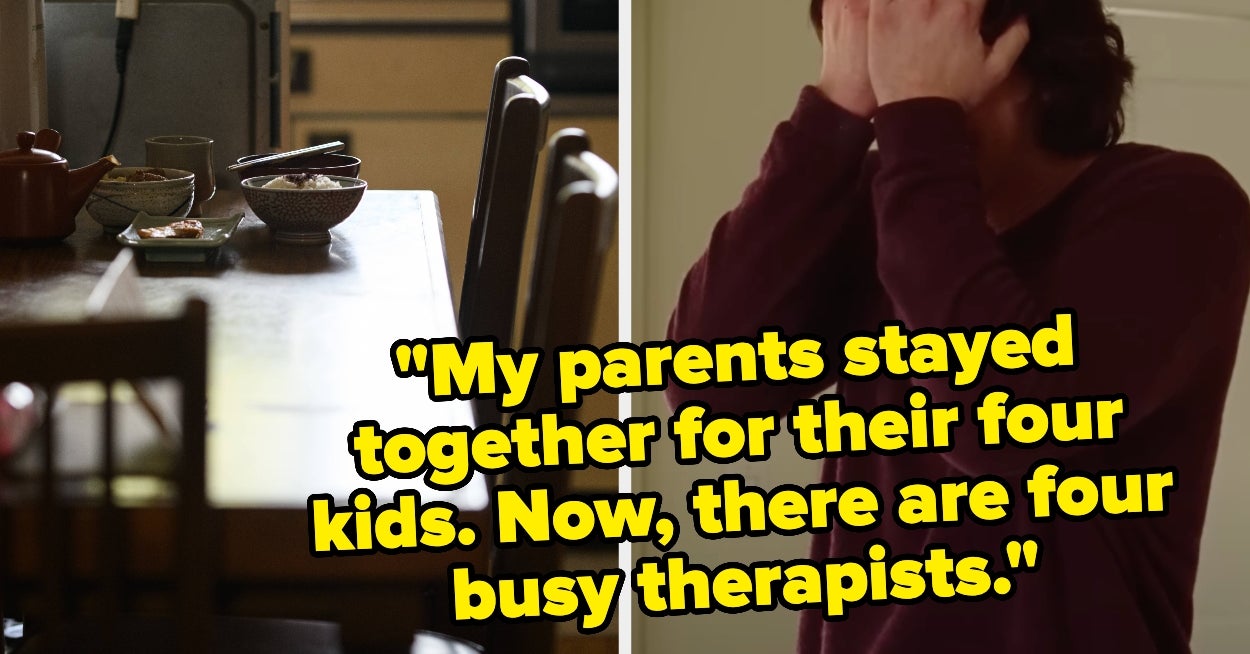
"It's all dependent. My parents did and were very civil; our home was loving, and I had no idea they had issues at all. You would have to ask them how they felt, but as a kid, I always thought everything was fine and noticed no issues in how they changed post-divorce (after I finished college). They are still kind and communicate with one another. They keep in touch,"
"and their respective spouses are understanding (one of whom is also a divorcée with kids and gets it). I think it depends a lot on context. If there's screaming or violence in the house, or if one or both parties cannot be decent human beings, get out. It's not good for children to be raised in chaos. If it's just like this isn't optimal, but I still respect this person, and we can be kind, work together as a team, and healthily love our children"
Experiences of staying together for the kids vary widely. Some parents remain civil and cooperative, producing stable, loving homes where children feel secure and unaware of marital strain. Other parents stay but remain hostile or miserable, creating long-term emotional damage for both partners and children. Context matters: nonviolent, respectful cooperation can make staying beneficial, while screaming, violence, substance abuse, or chronic disrespect make staying harmful. Open communication and parental teamwork can reduce children's instability and prevent them from blaming themselves. Many outcomes depend on the degree of conflict and the parents' ability to shield children from dysfunction.
Read at BuzzFeed
Unable to calculate read time
Collection
[
|
...
]